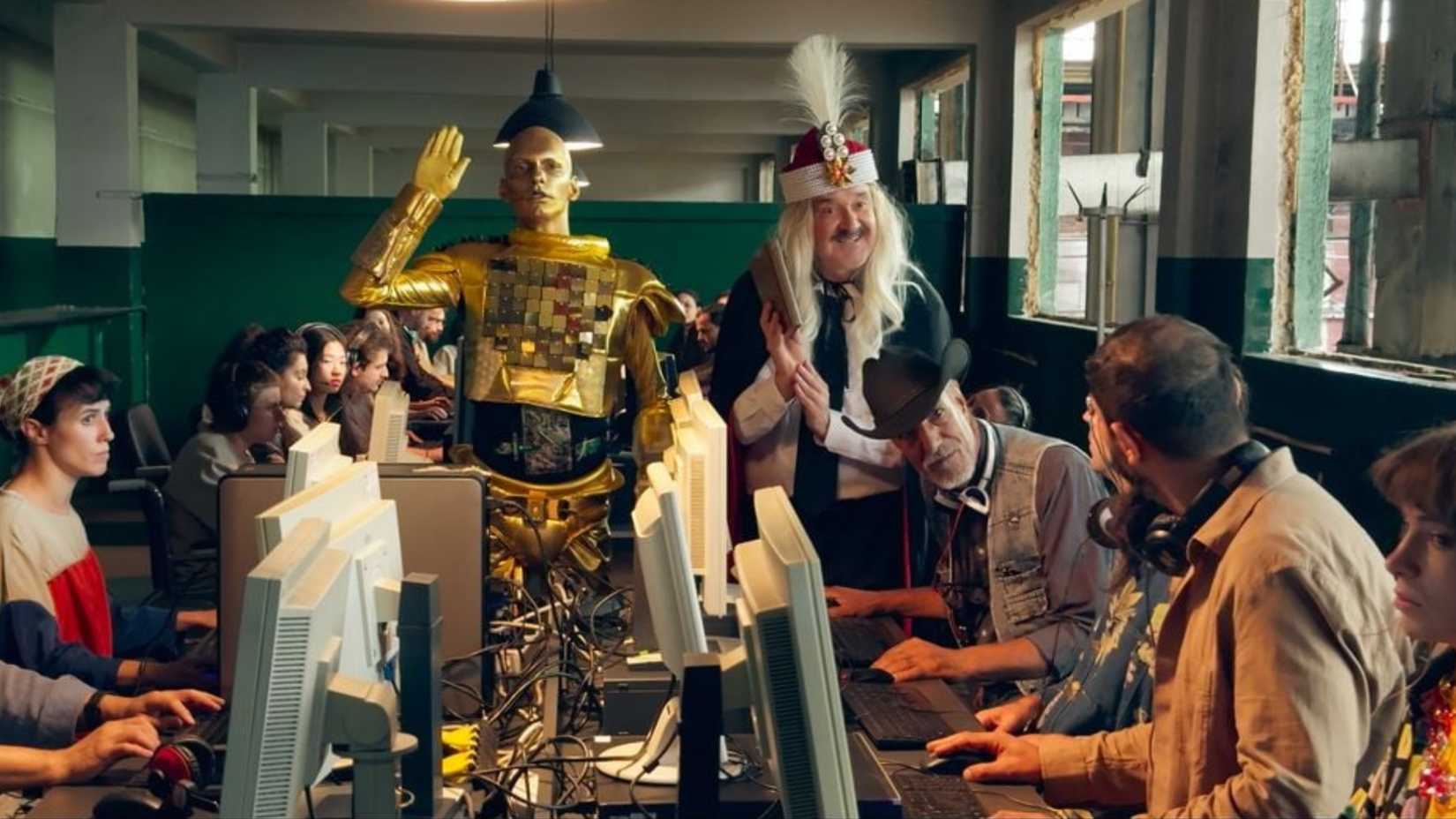There are about 17 different movies that make up director Radu Jude’s Dracula, and miraculously, they nearly all work. Never one for subtlety nor in want of profane ambition, the Romanian director’s latest is a clever crossbreed of one of Romania’s oldest stories with a pointedly relevant issue: the proliferation of generative AI in the creative sphere.
Jude’s deployment of the technology underscores not only the director’s own disdain for these “tools,” but points towards his admiration for the unpredictability and imperfection of human creativity. No matter the seemingly boundless potential of AI to create, its efforts are vapid and hollow in comparison to the truly unlimited artistry of the human mind. With Dracula, Jude suggests that a holistic embrace of humanity’s most debased and colorful tendencies can be the wooden stake that’s plunged into the soulless heart of work made using generative AI.
- Release Date
-
October 31, 2025
- Runtime
-
170 minutes
- Director
-
Radu Jude
- Writers
-
Radu Jude
- Producers
-
Rodrigo Teixeira
What makes Dracula feel so vivacious is how human its scatterbrained premise is. It embodies that live-wire energy of when you’re in conversation with someone and they go on multiple tangents (and then go on tangents of those tangents). As overwhelming as it can be to be in Jude’s head, it’s a riot to be on his train of thought. The core plot revolves around a lazy and talentless director (Adonis Tanța), who relies on AI technologies (with lore-honoring names such as DR. AI JUDDEX) to create a version of Dracula that will be palatable for Hollywood audiences. Tanța masterfully embodies the worst of the people who act as proponents for these tools: those who claim to love art but refuse to put in the work to make anything meaningful, and see generative AI as a way to circumvent the necessary ardor of making anything truly great.
Dracula starts innocuously enough. The main story of Tanța’s character’s film revolves around a late-night interactive show where actors, played by Gabriel Spahiu and Oana Maria Zaharia) reenact the main story of Dracula; this culminates with participants being able to chase them through the town with hammers, wooden spikes and all manner of blunt instruments. In a manner that’s both annoying and hilarious, Tanța’s director character, finding himself bored with these developments, tells his generative AI to craft any number of subplots that somehow involve the titular vampire.
He sprinkles these narrative detours into the main plot of the film, each punctuated by a title card. This gives the film its irreverent, hypnotic pace, and with these vignettes, Jude has crafted a film perfectly suited for, and also critical of, a generation that’s used to constant simulation (i.e., those who are tempted to pull out the little screen to scroll through TikTok if there’s a dull moment in the movie they’re watching). The joy of the film is seeing how awful the AI is at doing its job, a reminder that not only is the technology not the impeccable content maker its sycophants make it out to be, but a that it comes riddled with the problematic biases of its makers. In one humorous moment, Tanța’s director character asks the program to make a lesbian version of the story, to which the AI replies that, because it was created by Europeans, it cannot tell a diverse version of this narrative. Another moment involves a prompt for a “silent” film version of the story, but only half of the film is silent; the rest is vociferous to a comical degree.
These multiple sketches all tell a larger tale about how the proliferation of Dracula stories has rendered the tale moot. Once you become a character who gets memed and has merchandise made with all the cultural cache of a Labubu, does this ruin the relevancy of your story? Is that the end goal of having a narrative mythologized? Is it possible for stories to survive without being corrupted by the market forces of late-stage capitalism, which conditions people to crave familiar IP without giving them the space to ask why? Jude’s film never explicitly hints at all of these, but seeing Dracula remixed (imperfectly and crudely) in all of these different genres provides the foundations for Jude’s musings around legacy, image and stewardship.
Jude’s Dracula, in many ways, is a film that celebrates the glory of human imperfection; it sees the errors in art-making as integral to the process, rather than flaws to be jettisoned. In the moments of the film where Jude uses AI, he often overlays these garish images on top of each other at rapid speed, as if we’re watching a Kineograph. It’s dizzying and nauseating to see such vulgarity. The horror of AI is how sanded down, glossy, and “perfect” it tries to be; ironically, in trying to create something pristine with its images, it only manages to craft something soul-sucking and ghastly.
It’s the cloddish elements of life, the deeply human elements of filmmaking — the iPhone lens that’s just slightly out of focus, the muffled audio in a fight scene — that are worth celebrating. The iconography and story of Dracula is too tantalizing to leave in the coffin for long, and Jude’s adaptation reminds us why this story remains worth telling over and over again.
From 1-2 Special, Dracula opens in limited theaters on October 29.
Source link



















Add Comment